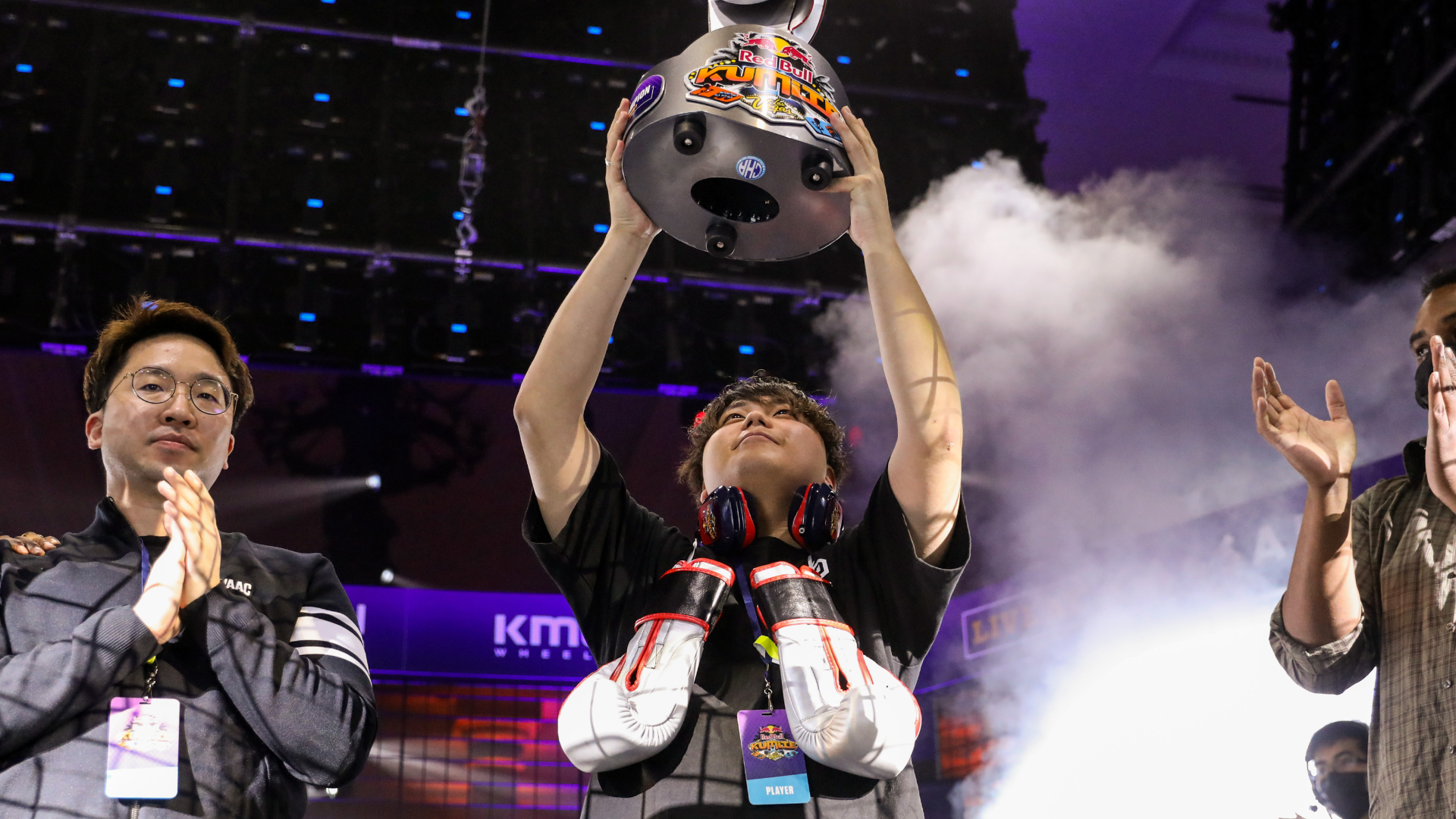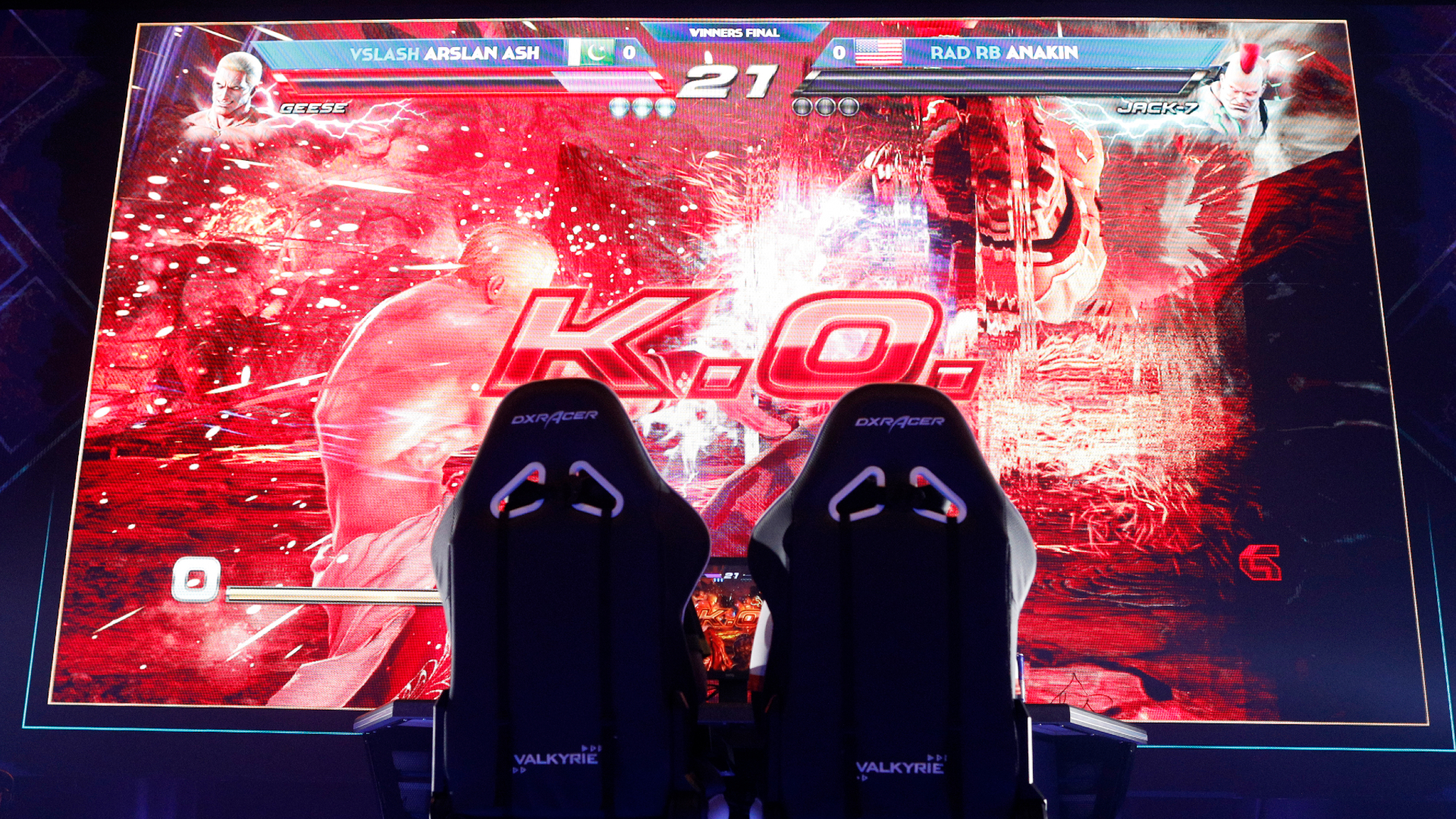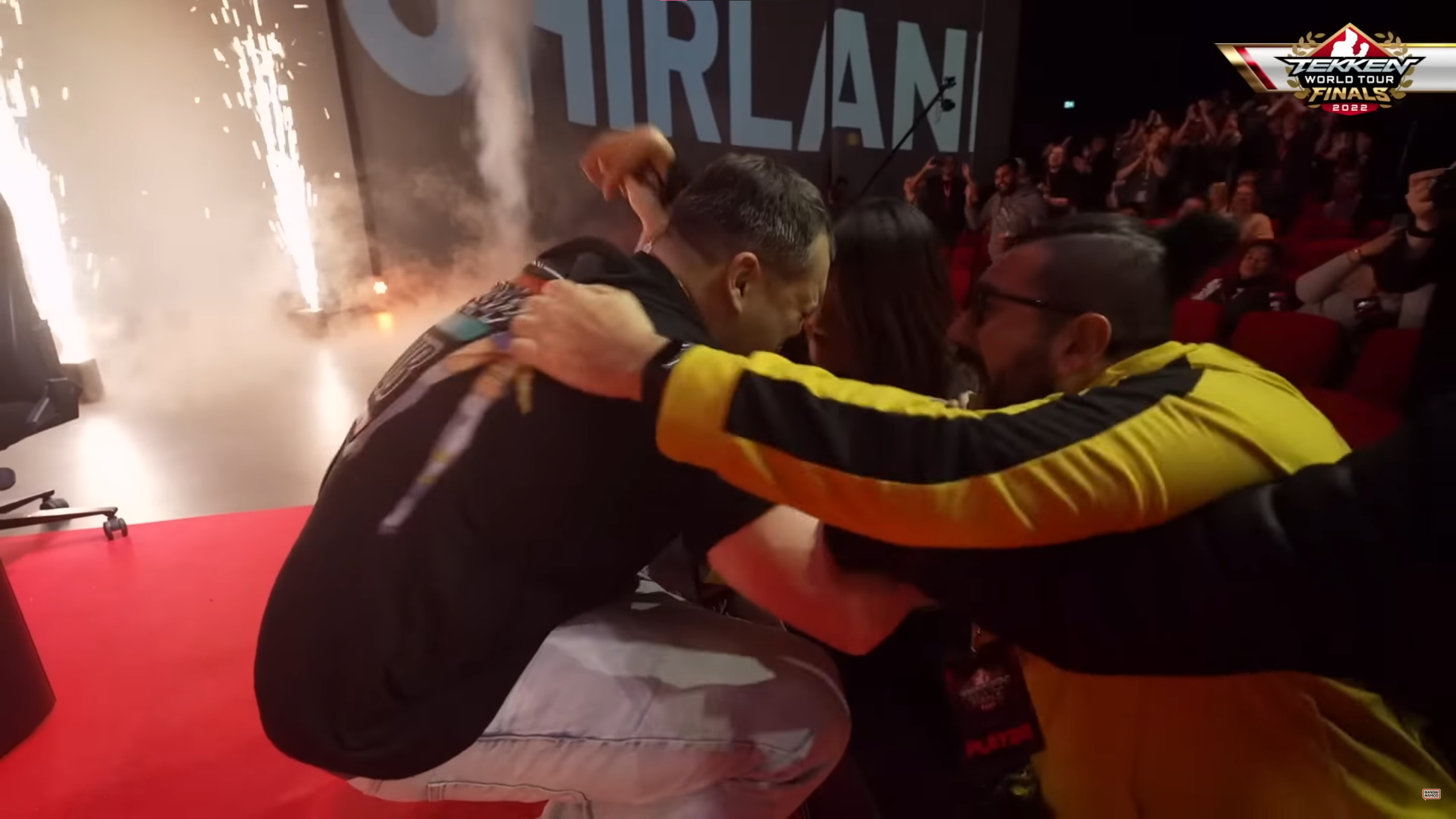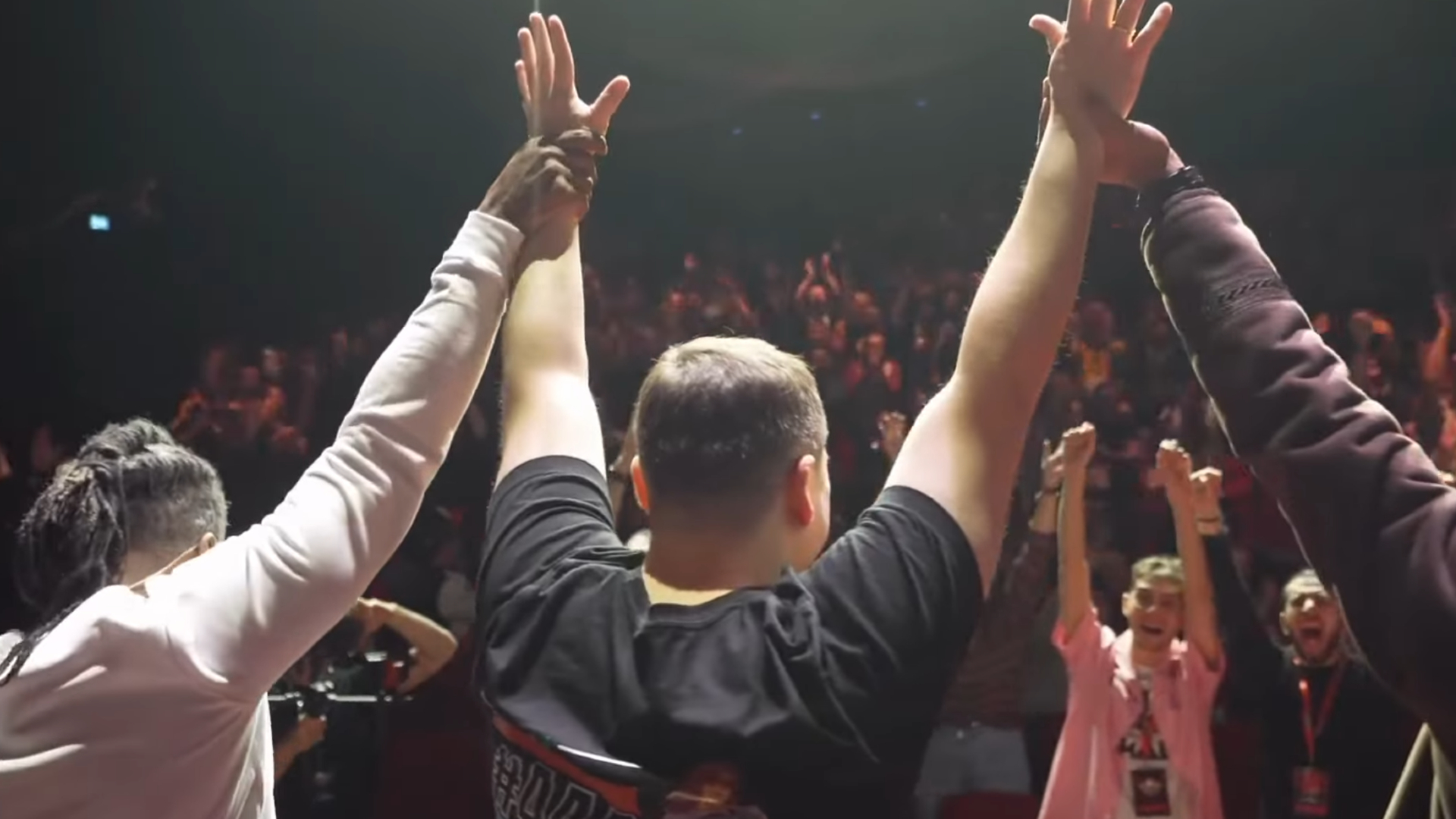The competitive fighting game community deserves better, and might finally be getting it: 'we're the next big thing'
The FGC has lagged behind other esports for investment and prize money, but the tides may be turning.

Esports is in a weird spot right now. We're seeing major tournaments dole out life-changing money: League of Legends' 2022 Worlds offered up a prize pool of $2,230,000 at its grand final. The Fortnite Championship Series 2022 Invitational's prize pool was $1,000,000, and Dota's 2022 International Tournament saw a staggering total prize pot of $18,930,775. The winners of the latter—Tundra Esports—took home $8.5 million for the pleasure.
Yet, sponsorships are beginning to dry up. Investors are pulling out. Many organisations are operating at a loss. It sucks for esports as a whole. But for competitive fighting game players, it's been the norm for a long time. After all, the FGC was hardly given a chance in the first place. This year's Street Fighter 5 Capcom Cup had a $300,000 prize pool, while the Tekken World Tour 2022 Finals was a mere third of that. Tekken 7 champion Atif Butt took home 0.5% of what Tundra made. What gives?
Money match
As competitive Tekken 7 player Joshua "Ghirlanda" Bianchi points out, fighting games were one of the first genres to popularise the idea of tournaments being a direct head-to-head as opposed to individuals separately vying for the highest score. As other games have broken free of the arcade scene into grand arenas, fighters have remained closely tied to their grassroots origins—for better and for worse. "Fighting games were the first esport to actually have the structure of an esport [event]," Ghirlanda says. "But then they didn't evolve."
He's not wrong. While games like League of Legends and Dota were able to thrive online, fighting games were always best played in the same room as your opponent. It didn't help that netcode for many fighting games sucked for a long time—and some still do—making offline play the primary choice for many. It also meant that as the number of tournaments began to grow all over the world—many of these still run by members of the fighting game community—travelling was necessary. Online tournaments were few and far between, and often weren't awarding points for seasons like Tekken World Tour. Considering players need to participate in a multitude of tournaments and rack up the points to qualify for it, it's a big deal.
When I spoke to Ghirlanda, he was a free agent. With no sponsor to fund flights, hotels or tournament entry, the financial burden fell solely on him. "It's actually quite hard," he said. "It's actually also hard to find sponsors for different reasons. I'm not the best-looking guy in the world, and I'm kinda old as well. Maybe teams prefer younger players, and I totally understand it." He also told me that a lack of an advanced tournament schedule can make it tough for organisations to take the plunge on fighting game pros. "Imagine my team wants to organise the budget for the whole year. How can they do it with so much uncertainty?"
During the Tekken World Tour 2022 grand finals—where he placed fourth—it was revealed that he had been working two full-time jobs. One to support his wife and child, and one to pursue his competitive Tekken career. With a desire to bring his family along with him to his tournaments, the cost can quickly pile up.
Often, players are finding their travel and entry investments aren't even offset by tournament winnings. Ghirlanda's fourth place granted him a $4,000 prize. With players often entering at least a dozen tournaments each season, it's a minimal reward. His Liquipedia page shows that he won $8,325 across seven tournaments during the Tekken World Tour 2022 season. He tells me that this season was a little easier financially as it was region-locked—meaning only tournaments from Europe counted towards overall points earned—leaving juggernauts like EVO and CEO out of the mix.
Keep up to date with the most important stories and the best deals, as picked by the PC Gamer team.

This year's World Tour is back to a global free-for-all, though. With a post-pandemic landscape boasting hugely inflated flight and hotel prices, plus a rise in tournament entry so that organisers can continue to stay afloat, unsponsored pro players are likely to face a tough time. "The prices of everything are like, double or triple from 2019. Plus, I now have my daughter and my wife. I know it's my decision to bring them, but even alone the price is triple."
The soul still burns
Despite thousands of impassioned fighting game players of all skill levels paying to travel and participate in tournaments around the world, it still hasn't been enough for many publishers and organisations to further invest. There seem to be fears of forgetting the grassroots origins of the community, too. The FGC is one of the few esports where events are largely free-for-all. Wanna compete in one of the biggest fighting game tournaments in the world? Sure, just cough up the money and you can potentially face off against a top player in your first game. Invitationals do exist but for the most part, everyone is equal regardless of skill or standing. It's something that makes the community unique, but some are worried that'll vanish with more modern investment.
"There are people that are also afraid that putting too much money [into the scene] might make the grassroots origins disappear," Ghirlanda tells me. "I'm totally against this picture. Even if somebody is organising a million-dollar tournament, wherever in the world, I can still do that event with 20 people from my city like I was doing before. Actually, more people might hear of the game because there is a big event. So I might have even more people coming to my grassroots event to familiarise themselves with the game."

On the developer and publisher side of things, Ghirlanda believes the most significant way to push the scene to new heights is to bridge the gap between the developer and the player, telling me "communication is key." He highlights the old League of Legends Summoner Showcases that Riot used to hold, which would show off player-created artwork, videos, cosplays and other League-related goodies in a weekly YouTube video. "It would be very cool to see this type of support," he says. "Something that people can get involved with to know that they play a game that developers really care about."
I couldn't agree more with Ghirlanda's sentiment about the community. While our chat is mostly focused around Tekken—both our preferred fighting game of choice—we agree the same applies to the likes of Capcom and Arc System Works, too. 2023 is a big year for fighting games, after all. Street Fighter 6, Mortal Kombat 1, and Tekken 8 are all at the forefront of the new generation of fighters. This, Ghirlanda tells me, is the community's opportunity to shine.
"We're literally living the most important days ever. For the whole genre—not for my game, not for the Street Fighter players, not for the Guilty Gear players—for all of us," he says. "All the fighting game communities are in the most important months we've ever lived. If we want to evolve, if we want to explode. This is the moment to grow in terms of creating content, organising events, trying to contact [esports] teams. Teams as well, I think they should appreciate us more now. I really believe we're the next big thing."
The next battle
I think Ghirlanda's right, too. Despite dwindling funding in esports and a decreasing lack of willingness from organisations to pick up new players, the tides are turning for competitive fighters. Capcom came out with the shocking announcement that this year's Pro Tour—the first one to feature Street Fighter 6—would have a whopping $2 million prize pool. The grand winner will take home half of that. That's a sweet prize for a single player by regular esports standards. By FGC standards, it's unheard of. In fact, it's by far the biggest prize pool we've seen at a fighting game tournament. Just to put into further context how huge it is, it's a 566% increase over what it offered last year for Capcom Cup 9. That's major.
A post shared by Street Fighter (@streetfightergame)
A photo posted by on
It's a huge investment from Capcom, one that shows its confidence not just in Street Fighter 6—which sold a million copies in its first week—but also in the competitive scene. It's a trailblazing move to make, one that both Ghirlanda and I hope will light a fire under Bandai Namco and other fighting game developers' asses. That's not the only potentially big investment we have coming our way, either.
Riot Games is working on its own fighting game right now, Project L, that will no doubt have a wild amount of funding behind it. The studio has funded tens of millions into its competitive League of Legends and Valorant scenes. In 2022 alone it funnelled half of its $42 million sales of Valorant's VCT Championship skins back to the teams who had competed. I imagine the first competitive season for Project L will similarly pull out all the stops, throwing the big bucks at competitive players and putting on a spectacle. Between Capcom's financial innovation and the exciting prospect of Riot doing the same, there's a good chance to set the standard for what future fighter esports should look like.
Plus, since my time talking to Ghirlanda, he's signed on with Saudi esports organisation Team Falcons. He was scooped up alongside French Street Fighter player Mister Crimson and Joka, one of the best British Tekken 7 competitors right now. The investment in their careers has been a long time coming for all three players.

Before Ghirlanda had signed on, I asked him why esports organisations should take a chance on fighting game players. "Because we're cheap!" he tells me. "Imagine you just have one player instead of a team. League of Legends needs five people, plus a coach, plus the reserve. It's like you're hiring a football team. A fighting game player you have one guy, I always organise myself with travel and you don't even need a manager… if you find someone reliable—and most of the people in our community are—it's a good scene to invest in."
I've really become enamoured with the FGC over the last 12 months, and speaking to Ghirlanda made me even more eager to see this scene thrive. It's full of some of the coolest people I've met, people who want to see their peers thrive. People who still turn up to their locals even after winning world championships. We're not perfect, but we deserve to be up there with the other esports. If things continue trending in our favour, I think we're finally gonna get it, and I couldn't be happier.

Mollie spent her early childhood deeply invested in games like Killer Instinct, Toontown and Audition Online, which continue to form the pillars of her personality today. She joined PC Gamer in 2020 as a news writer and now lends her expertise to write a wealth of features, guides and reviews with a dash of chaos. She can often be found causing mischief in Final Fantasy 14, using those experiences to write neat things about her favourite MMO. When she's not staring at her bunny girl she can be found sweating out rhythm games, pretending to be good at fighting games or spending far too much money at her local arcade.

